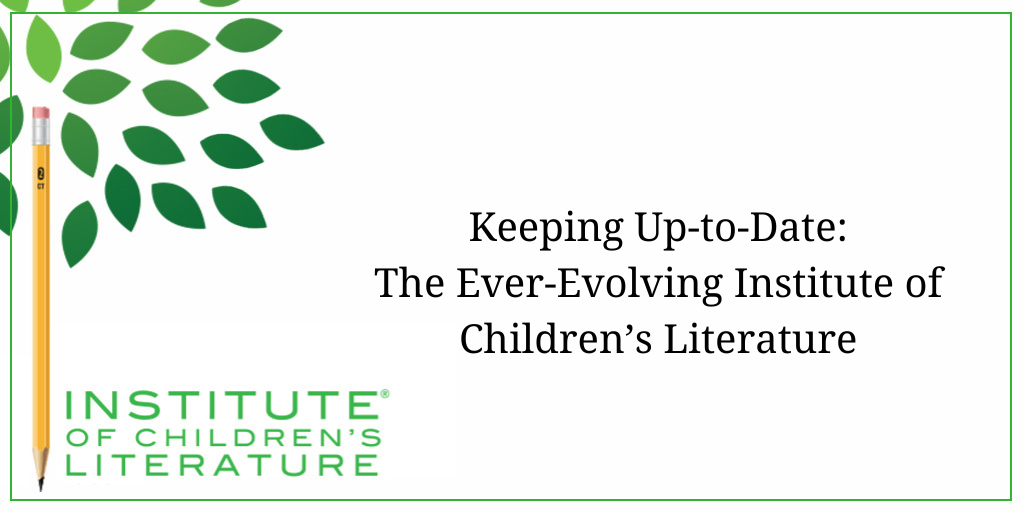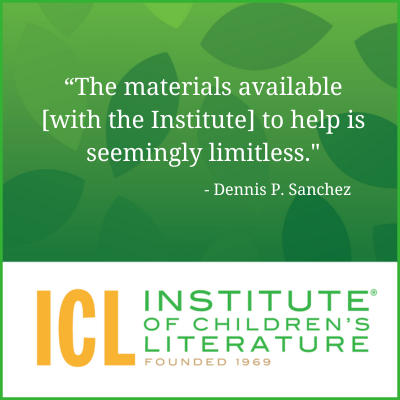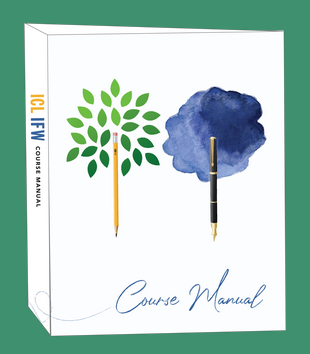
5 Ways Writers Can Prep for 2025 Goal Setting
Before we roll on to the new writing year, let’s harness our optimism for the blank slate before us and prepare for our 2025 Goal Setting just for writers.

The Institute of Children’s Literature has been around a long time, long enough to build a solid reputation for helping students grow from hopeful, raw talent to having the skills and the information to see their work published. That hasn’t changed, but publishing today is profoundly different from when I had my first published magazine articles in the early 1980s.

As a result, the Institute has changed to ensure writers don’t just improve their writing skills but have the knowledge to be comfortable with the electronic side of submissions as well. And the bonus is that these changes make the sending of assignments and receiving feedback quicker than ever.
Personally, I don’t always handle change well. As much as hauling submissions to the post office felt momentous somehow, I don’t miss the time out of my day, nor the expense. I like the quicker responses from editors via email when I’m going through the revision process. And I love how easy it is to track down resources when I’m researching a topic.
All of that came from changes in technology and in the industry itself, and I had to reeducate myself over and over to keep up. I still encounter new software demanded by publishers sometimes, but it helps that I’ve worked with similar things in the past. I honestly could not have the success I have today (and I feed my family on what I make writing), if I didn’t keep up with the ever-evolving technology. It’s simply something writers must do.

Now having reassured you about ways that the Institute is still old school, I need to let you know that it has also changed things to make them even better for students. The interactions with instructors and the submissions of materials have moved online. In many ways, this process now better mirrors what writers will deal with once they start submitting.
Today, finding a publisher like Fun for Kidz magazine that still accepts paper submissions is rare. Even connecting with publishers via email has become rarer. Now you often must use a submission service like Submittable or QueryManager. The Institute helps students understand how these things work and gives them practice with a very similar sort of software every time they upload a manuscript to their instructor.
 A Special Spot for You
A Special Spot for YouWhen you enroll, your Institute homepage will be special for you. You’ll sign in to see a row of icons for the things you’ll need most. Your dashboard will take you right to where you’ll be working. Your calendar will let you record the assignment deadlines you give yourself, as well as keep track of when you sent your most recent assignment.
You’ll have multiple ways to access the information you need to see, which is great as you never end up struggling to find the one “right” way to do what you need to do. You’ll also find a link to site news (which keep you informed about important announcements, such as how upcoming holidays can affect student services). It’s all easy to navigate and full of helpful bits and bobs.
When you click on your writing course, you’ll find all the material you’ll need as you move through the course, including information about communicating with your instructor, your assignments, and your resources. You won’t need to search for what you need. It’s all easy to find.
Back in the paper and postal mail days, one of the most frequent complaints from students was how long it took to hear back from instructors. That has changed radically. Sure, instructors still need time to read student assignments, look up information to give students the best possible answer, and then craft feedback that keeps students moving forward confidently, but no one has to wait for the postal mail anymore.

Another bonus is having all the supplementary materials available all the time. If, for example, your instructor recommends you send a manuscript out to a publisher that uses Submittable, there’s a PDF right in your collection of supplementary material that explains how to use that service.
At first? Probably fairly scary. Taking on anything new is scary, and the Institute of Children’s Literature’s writing courses are usually taken by students who have a real dream of writing for publication. It’s important, and that adds to the nerves. But the support for new students is extensive, walking you through how to write your assignments (and even giving you a template you can use every time), how to send them in, and how to ask questions (and who to ask) whenever you hit a snag.
You won’t be alone in this, so take a deep breath and give yourself permission to spend a little time getting used to it.
If you do make a mistake, someone will help you get it straight. And the best part is that when you later encounter these kinds of software interfaces with publishers (and I’ve encountered several over the years), you’ll find them so much less intimidating because you’ve already worked with something similar.
One of the things I’ve learned over the years is that all these kinds of programs have strong similarities, so working with one will make it so much easier when you encounter a different one. If you decide to go the self-publishing route someday, you’re going to encounter similar sorts of electronic hurdles, but you’ll feel less swamped and more ready for the challenge.
The Institute of Children’s Literature today is very different and very much the same as it was when I first started working with them decades ago. The information offered to students has always been top-notch. It still is. The student services support has always been kind and eager to help. It still is. The instructors have always been professionals with years of experience in both writing and instruction, and they still are. But now, your writing time will drag less, and you’ll have even more support to help you succeed in today’s publishing world.
With over 100 books in publication, Jan Fields writes both chapter books for children and mystery novels for adults. She’s also known for a variety of experiences teaching writing, from one session SCBWI events to lengthier Highlights Foundation workshops to these blog posts for the Institute of Children’s Literature. As a former ICL instructor, Jan enjoys equipping writers for success in whatever way she can.

Before we roll on to the new writing year, let’s harness our optimism for the blank slate before us and prepare for our 2025 Goal Setting just for writers.

Writers can be thin-skinned when it comes to getting feedback on their work. Let’s look at 4 ways to positively deal with constructive criticism!

Rejection is part of the territory when it comes to being a writer. Today we offer reflection for writers to help redirect your efforts after a rejection.
1000 N. West Street #1200, Wilmington, DE 19801
© 2024 Direct Learning Systems, Inc. All rights reserved.
1000 N. West Street #1200, Wilmington, DE 19801
© 2024 Direct Learning Systems, Inc. All rights reserved.
1000 N. West Street #1200, Wilmington, DE 19801
© 2024 Direct Learning Systems, Inc. All rights reserved.
1000 N. West Street #1200, Wilmington, DE 19801
© 2024 Direct Learning Systems, Inc. All rights reserved.

1000 N. West Street #1200, Wilmington, DE 19801
© 2025 Direct Learning Systems, Inc. All rights reserved.

1000 N. West Street #1200, Wilmington, DE 19801
©2025 Direct Learning Systems, Inc. All rights reserved. Privacy Policy.